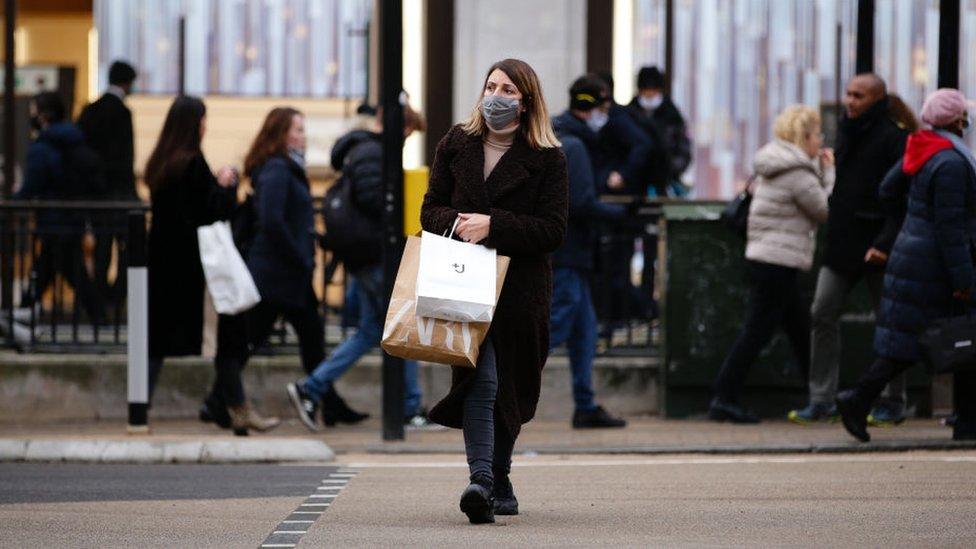Horsham mother speaks out over poverty as Covid debt rises
- Published
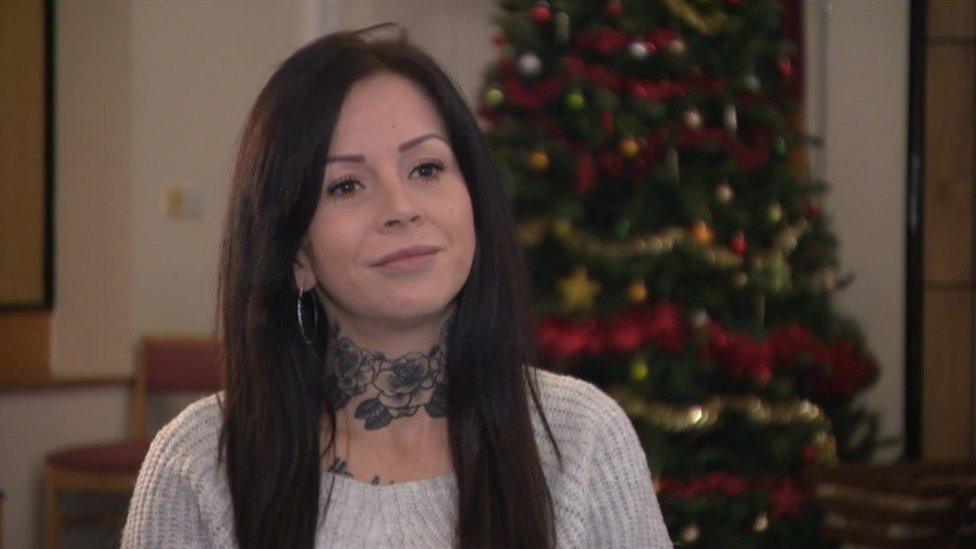
Amber Smith faced poverty, homelessness and a court summons
A mother-of-four has told how she faced losing her flat with her children last Christmas as new figures show one-in-five young adults in the South East will rely on charity this year.
Amber Smith, 30, faced poverty, homelessness and a court summons after she and her partner split up and she found they hadn't paid rent for months.
She turned to the Salvation Army in Horsham, West Sussex, for support.
The charity said young adults had been hit hardest by the pandemic.
A survey of more than 2,000 UK adults aged 18 to 30, commissioned by the charity, found 18% in the South East were behind on rent or mortgage payments.
One-in-four had borrowed money, while 12% of respondents had visited a food bank since the start of the pandemic.
Ms Smith, who has four sons aged four, six, 12 and 14, said: "I remember thinking I didn't know what to do. I had some friends, but my friends couldn't help me. There was no way out."
"I felt like a failure," she said. "I was in a really dark place knowing my children wouldn't have a Christmas like all the other children."
Ms Smith, who went on to receive Universal Credit, said she wasn't evicted but faced a significant amount of debt at an expensive time of the year.
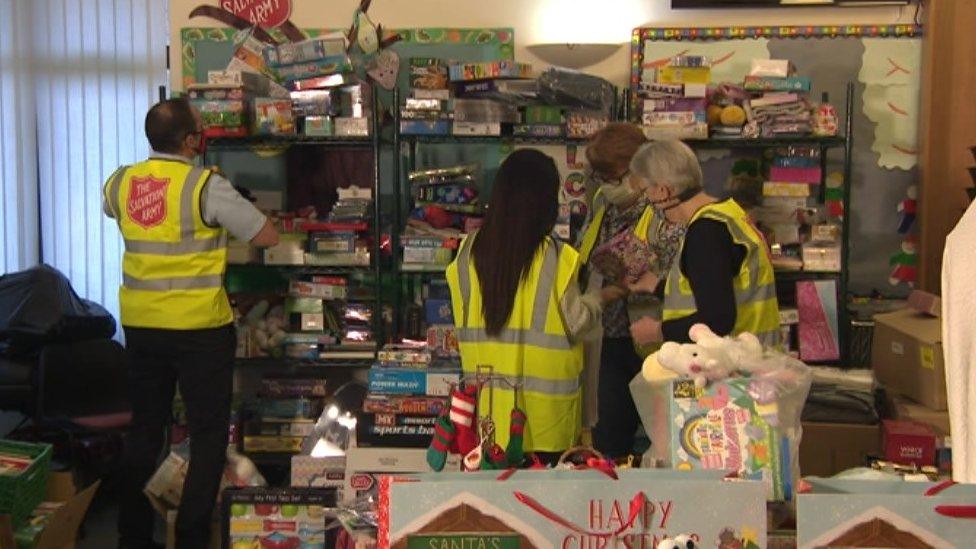
The Salvation Army said young adults had been hit hardest by the pandemic
Major Iain Stewart, a church leader for The Salvation Army, said the pandemic had exacerbated an already-difficult climate and the charity had seen a 75% increase in the number of people accessing help at Christmas.
He said: "[Young adults] are very much the group who are in the most tenuous employment, the lowest paid work.
"People who have been more skilled have come in and taken the jobs they might have had and so they're struggling even more."
He said that age group had been hardest-hit because they had not had time to develop their careers and get to a more secure place.
'Breathing space' needed
Cross-party think tank Demos also said young people had borne the brunt of the pandemic financially.
Ciaran Cummins, co-author of a report on the issue, said under-30s were facing rising costs for things like housing, childcare and travel.
"We're quite used to the narratives of young people spending too much on luxuries, avocado toast," she said. "But the reality is young people are spending nearly twice as much on essentials as those aged 51-plus during the pandemic."
The Salvation Army has called on the government to provide more "breathing space" for people with debt problems who are waiting for their first Universal Credit payment.
It also said more debt support was needed for those at risk of falling into arrears with mortgage or rent.
A government spokesman said "We are committed to supporting people of all ages and we have provided billions of additional welfare support through the pandemic.
"Work is the best route to financial independence and the changes we have made to Universal Credit will see nearly two million of the lowest-paid better off by around £1,000 a year.
"The most vulnerable, including those who can't work, can get additional help with essential costs available through our new £500m support fund."

Follow BBC South East on Facebook, external, on Twitter, external, and on Instagram, external. Send your story ideas to southeasttoday@bbc.co.uk.
Related topics
- Published24 November 2021
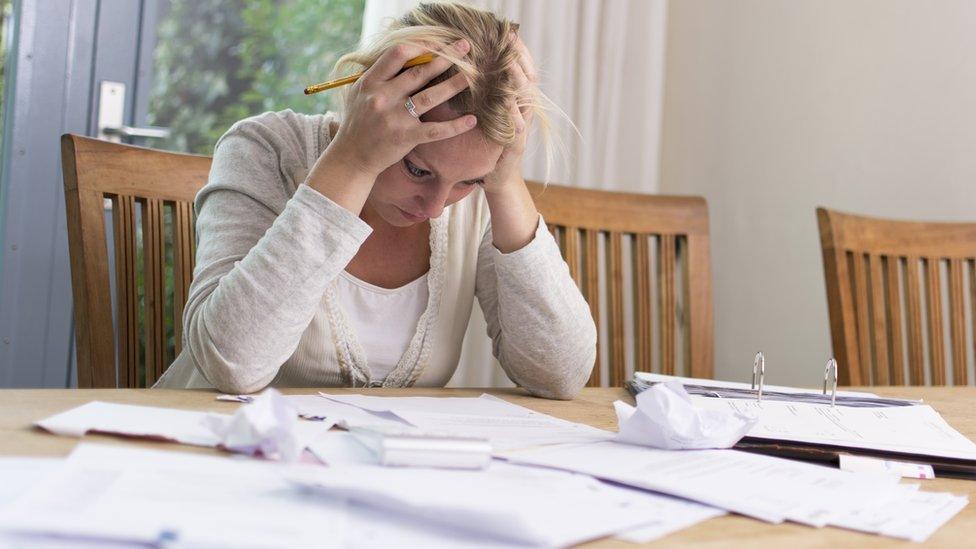
- Published4 May 2021

- Published29 April 2021
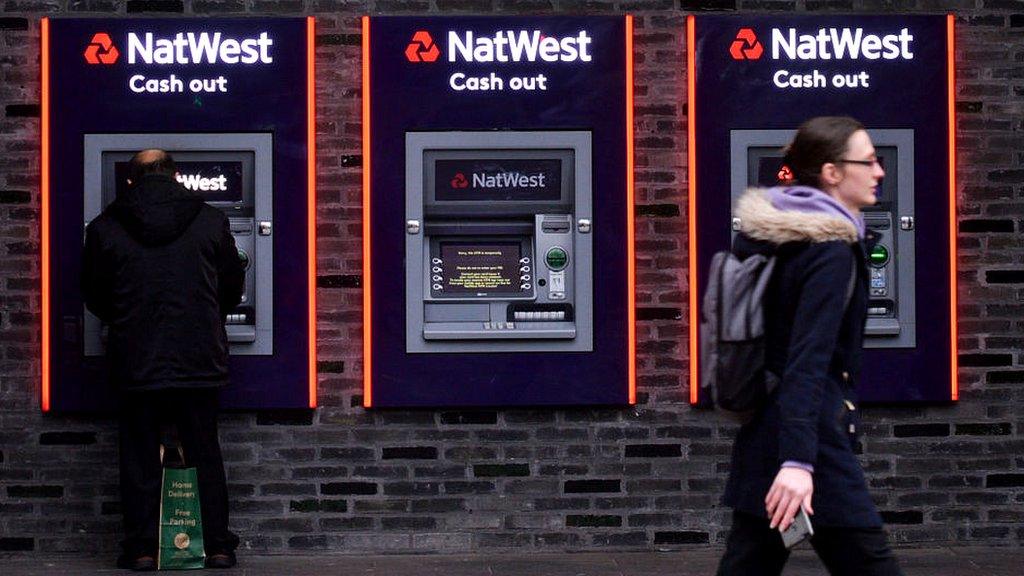
- Published26 April 2021
